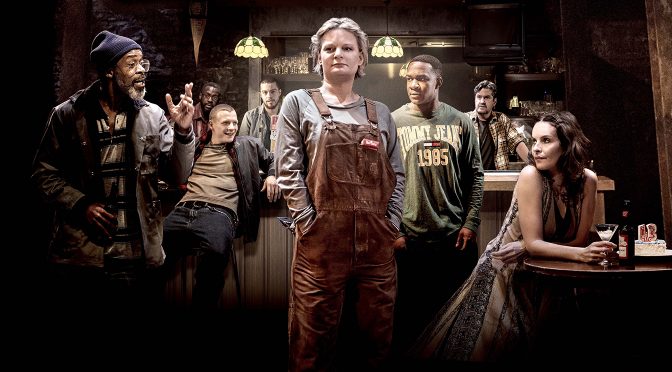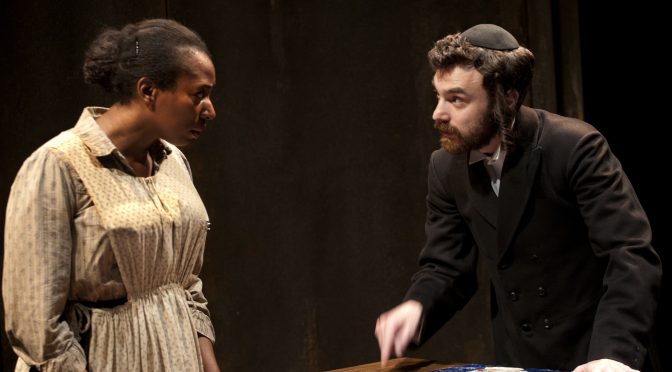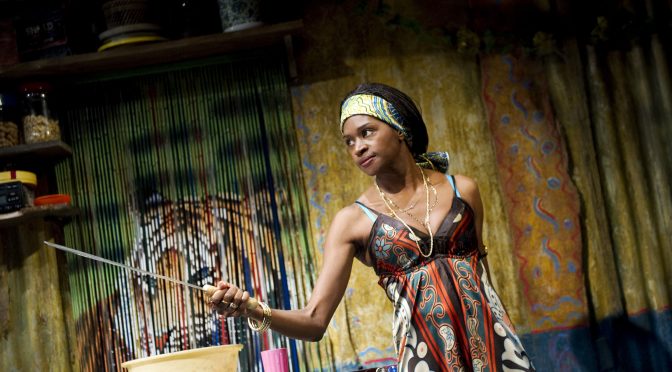Hope is the takeaway from playwright Lynn Nottage’s diner-based drama. The ex-convicts who are employed by the owner of the restaurant that takes her name know they’ve made mistakes and won’t find work elsewhere. But they still have aspirations – to make the perfect sandwich. It doesn’t sound like a lot, but Nottage and this five-star production make it a fulfilling menu.
Nottage often writes about the world of work – about trades unions in Sweat or the rag trade in Intimate Apparel. But while the setting is America, evoked with great skill, the concerns she raises are global: expectations, exploitation and the gig economy. A sense of pride in work is made palpable. To show the importance of the cuisine, the lighting and movement are invaluable, with credit to Oliver Fenwick and Kane Husbands respectively. It’s important we take these sandwiches seriously!
To really make sure we care, it’s Nottage’s larger than life but credible characters that power her drama so effectively. You root for each in a variety of ways. Director Lynette Linton and her cast present a surprising collection of heroes to perfection.
The lead role, of sorts, is Clyde, a monstrous creation performed by Gbemisola Ikumelo, who is mesmerising. Despite being the boss from hell, Clyde’s difficult life and her problems make her intriguing as well as repulsive. She’s filled with hate – the question is why. Her counterpart is the Buddha-like Montrellous portrayed by Giles Terera with suitable mystery and charisma. For all the calm, it turns out his backstory is just as dramatic.
Montrellous inspires his three fellow chefs, acting as a mentor. And he can teach us all a thing or two. These younger characters adore him in heartwarming fashion while, of course, having their own problems. The dynamics between them prove engrossing. A potential love affair between characters exquisitely portrayed by Sebastian Orozco and Ronkẹ Adékọluẹ́jọ́ adds romance, while an unrecognisable Patrick Gibson has a stunning role as former gang member Jason.
There is nothing laboured about Nottage’s dialogue or, indeed, its delivery. While the problems faced are heavy, the humour is light – Clyde’s is a very funny play. Many playwrights can show their wit and create characters a little too amusing to believe. But the humour here feels effortless and flows naturally. Chef’s kisses for this great work.
Until 2 December 2023




